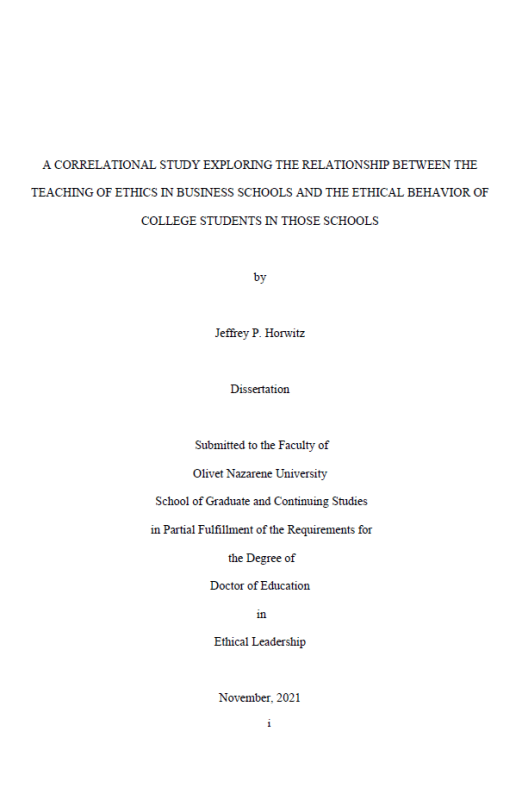- Resource Types
- Resource Languages
- Institutional Repository
 Visit the home page
Visit the home page
About Site Language
WHDL is viewable in multiple languages. Use the pull-down menu to select a language to view the site.
I changed my language, but I’m still seeing resources in the other languages?
If a resource or text has not been translated into your selected language, it will appear in the initially added language. We are always looking for help translating these resources. If you can help, contact us!
WHDL - 00017981


click to copy
Horwitz, J (2021). A Correlational Study Exploring the Relationship Between the Teaching of Ethics in Business Schools and the Ethical Behavior of College Students in Those Schools .
Horwitz, JeffreyA Correlational Study Exploring the Relationship Between the Teaching of Ethics in Business Schools and the Ethical Behavior of College Students in Those Schools . , 2021
Horwitz, JeffreyA Correlational Study Exploring the Relationship Between the Teaching of Ethics in Business Schools and the Ethical Behavior of College Students in Those Schools . , 2021
Horwitz, JeffreyA Correlational Study Exploring the Relationship Between the Teaching of Ethics in Business Schools and the Ethical Behavior of College Students in Those Schools . , 2021
The purpose of this quantitative, correlational study was to discover how colleges and
universities impact the moral development of their undergraduate school of business students
through the method by which they teach ethics in their curricula. To address the stated problem
of understanding the impact of ethics and its effect on the moral development of students, the
research question that drove this study involved discovering if there was a relationship between
the ethical decisions undergraduate college business students make (like deciding whether to
cheat on exams and/or assignments) and the way ethics content was delivered. In answering the
research question, five hypotheses were tested that included: Students who have received
instruction in stand-alone ethics courses are less likely to display cheating behavior; a student’s
age, year in school and gender will each predict cheating propensity; students that exhibit a deep
form of learning will be less likely to make unethical decisions in their college careers; and
students that exhibit a strategic or surface form of learning will be more likely to make unethical
decisions in their college careers. Two scales were used, one that measured the three forms of
learning and one that measured cheating propensity. The methodology involved convenience
sampling of the students from the Midwestern school that agreed to participate in the study. The
survey was fully completed by 206 participants who met the criteria for this study. The results of
this research revealed that there was a significant relationship between how ethics courses were
delivered to students and their propensity to cheat. Furthermore, age and year in school were
valid predictors of cheating behavior, but gender was not. Lastly, the students learning method
was not a significant predictor of cheating behavior.
15 Resources
Papers and theses produced by Olivet faculty and students.
2011
2023
2006
2008
2023
2023
2023
2022
2004
2020
2022
2023
2023
2023
2023
2023
2023